 Passover’s Message of Hope in the Aftermath of Oct. 7
Passover’s Message of Hope in the Aftermath of Oct. 7
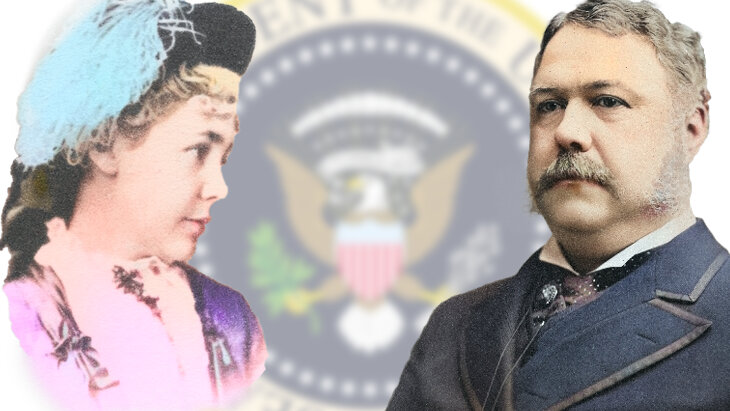

10 min read
Some rank Chester Alan Arthur as one of the worst presidents of all time. I think his life story is exactly what we need to hear this Yom Kippur.
For inspiration, many people look with reverence at the founding fathers like George Washington, John Adams, and Thomas Jefferson. Abraham Lincoln, Woodrow Wilson, and Franklin Roosevelt led the nation in times of peril. Harry Truman and Teddy Roosevelt made tough decisions at crucial crossroads.
I look towards Chester Alan Arthur, the 21st President of the United States, for inspiration. Even though some pundits rank him as one of the worst presidents, a leader who wasn’t even technically elected to serve in the White House, I believe his life story conveys a number of great lessons that are particularly relevant as we gear up for Yom Kippur.
Arthur found himself on the map of American history at a tumultuous time. Besides the challenges of putting the country back together after the Civil War, the country was plagued with a corruption that had been in existence since the founding of the republic and had grown worse with time.
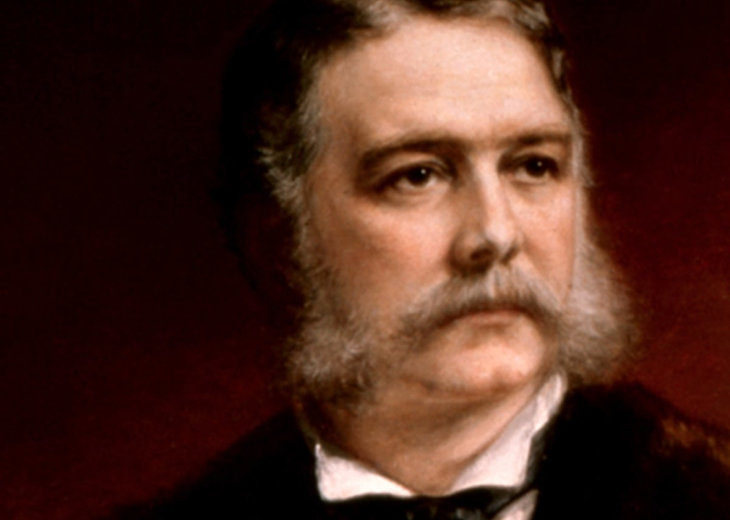 Chester Alan Arthur, the 21st President of the United States
Chester Alan Arthur, the 21st President of the United States
The Federal Patronage System (or Spoils System) endorsed political appointments as a reward to those who kept the party’s political machine going, regardless of one’s ability. Many Presidents had been elected on a platform to reform the Spoils System, but none had been able to stand up to those who helped propel them into office.
In 1869, Americans thought they were going to finally turn a corner with the election of Civil War hero General Ulysses S. Grant, who many viewed as another George Washington. Instead, they got eight of the most corrupt years of the American Presidency. Grant was followed by Rutherford B. Hayes who tried to reform the Spoils System but ultimately proved successful at only one thing, further dividing the Republican party.
At this time, the Republican party was deeply divided on the issue of patronage. The Stalwarts, led by New York Senator Rosco Conkling, wanted to keep the patronage system in place, and the Half-breeds vowed to reform the country. The internal rift boiled over at the Republican National Convention of 1880. In the days before binding primary elections, the convention alone would choose the presidential candidate, and 14 men were vying for the nomination.
The Stalwarts backed Ulysses S. Grant for an unprecedented third term. They felt that his image had been somewhat rehabilitated over the past four years and that he was once again electable. The Half-breeds backed Maine Senator James Blain. Secretary of the Treasury John Sherman, brother of William Tecumseh Sherman, was also considered a front runner. 379 votes were needed to win.
On the 36th ballot, Garfield received 399, clinching the nomination that he did not want.
On the first ballot, Grant got 304, Blain got 284, and Sherman got 93. On the second ballot, James A. Garfield, the congressman from Ohio, received one vote even though he had not been nominated. The balloting continued, with 33 ballots done over several days without any major changes. On the 34th ballot, a dark horse started to emerge from the pack – Garfield got 17 votes! He immediately challenged the legitimacy of this as he did not seek the nomination. His challenge was overruled by the chairman, who secretly supported his candidacy.
On the 35th ballot, Garfield received 50 votes, and on the 36th ballot, he received 399, clinching the nomination that he did not want.
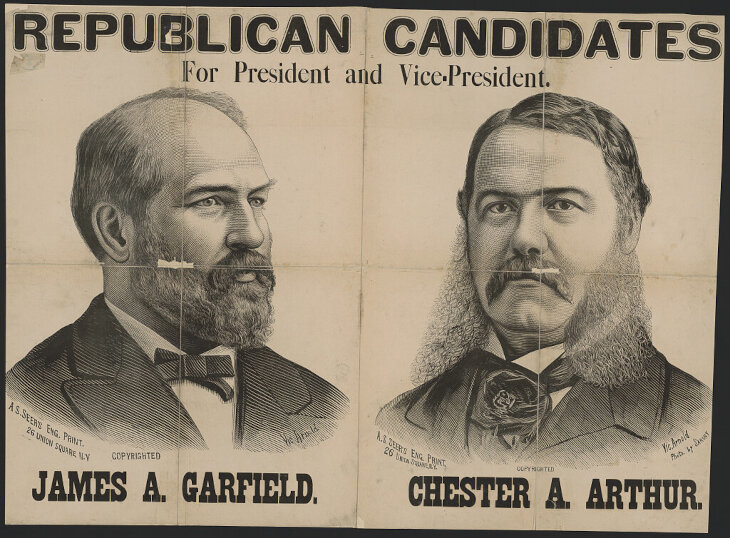
Conkling, the Stalwart leader, was livid at what had transpired. The Republicans knew that they needed to show a united front to beat Democrat Winfield Scott Hancock in the general election, so they nominated one of Conkling’s protégés as Vice President, Chester Alan Arthur. Arthur was a true Stalwart who had lined his pockets for years through the Patronage S ystem. The only position that he had previously held was Collector of the Port of New York, a job built for the crooked politician.
The general election had the largest voter turnout ever recorded at 78.4%. The Republican ticket won the popular vote by just 7,018 and an electoral college victory of 214 to 155. After the inauguration, Vice President Arthur worked in vain to secure cabinet positions for his cronies, but President Garfield made it clear from the beginning that he would work towards reforming the Civil Service. He did not appoint a single Stalwart to his cabinet.
Senator Conkling quickly butted heads with the president, and in a power play, he resigned from the evenly divided Senate, leaving Garfield’s appointments in peril, and fully expecting to be reappointed to his position by the New York State Legislature. During the summer recess of 1881, Conkling and Arthur returned to Albany to make this happen. In the end, Conkling had overplayed his hand, and New York chose another.
On July 2, 1881, the Spoils S ystem motivated Charles J. Guiteau, a deranged evangelical preacher who thought that he deserved to be Ambassador to France, to shoot President Garfield after not gaining an appointment. After shooting the President, Charles J. Guiteau boasted, “I am a Stalwart, and Arthur will be President!” In his delusion, he expected to be broken out of prison by Ulyssys S. Grant’s militia, and to then received his anticipated appointment.
In his wildest dreams, Arthur never imagined that he could be the president and he felt unfit for the task.
For two months Garfield lingered between life and death. During that time, save the first lady, there was no one more distraught over Garfield’s predicament than Chester Arthur. In his wildest dreams, he never imagined that he could be the president, and he felt unfit for the task. There were even those who suspected Conkling and Arthur of being involved in the plot. At 2:15 a.m. on September 20, 1881, Chester Alan Arthur became the 21st President of the United States.
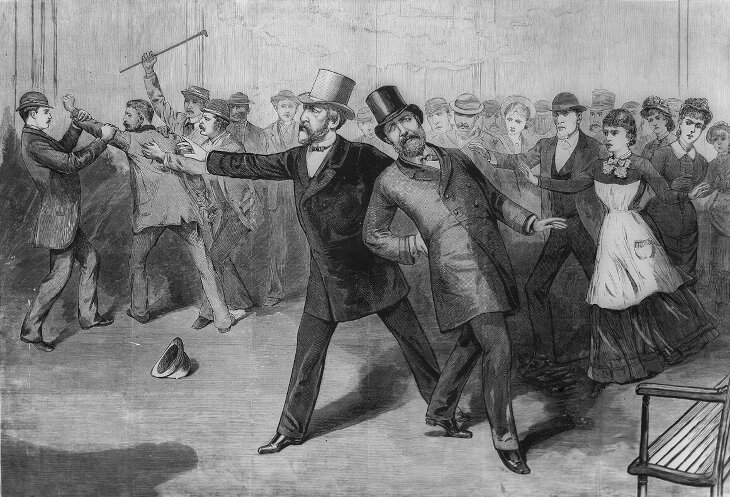 Engraving of James A. Garfield's assassination, published in Frank Leslie's Illustrated Newspaper. President Garfield is at center right, leaning after being shot. He is supported by Secretary of State James G. Blaine. To left, assassin Charles Guiteau is restrained by members of the crowd, one of whom is about to strike him with a cane. (Wiki Commons)
Engraving of James A. Garfield's assassination, published in Frank Leslie's Illustrated Newspaper. President Garfield is at center right, leaning after being shot. He is supported by Secretary of State James G. Blaine. To left, assassin Charles Guiteau is restrained by members of the crowd, one of whom is about to strike him with a cane. (Wiki Commons)
The assassination of Garfield achieved what 15 years of reconstruction had not been able to. The country was unified, and surprisingly, their new President rose to the occasion. President Arthur refused to follow the demands of Conkling, understanding the disgust of the American people with the Spoils system and how they blamed it for the beloved Garfield’s death.
Arthur was a changed man. Swearing off the corruption of his past, he became a fierce warrior for reform of the Social Service. On January 16, 1883, Arthur signed the Pendleton Civil Service Reform Act into law. In just two years' time, an unrepentant Stalwart had become the president who ushered in long-awaited civil service reform.
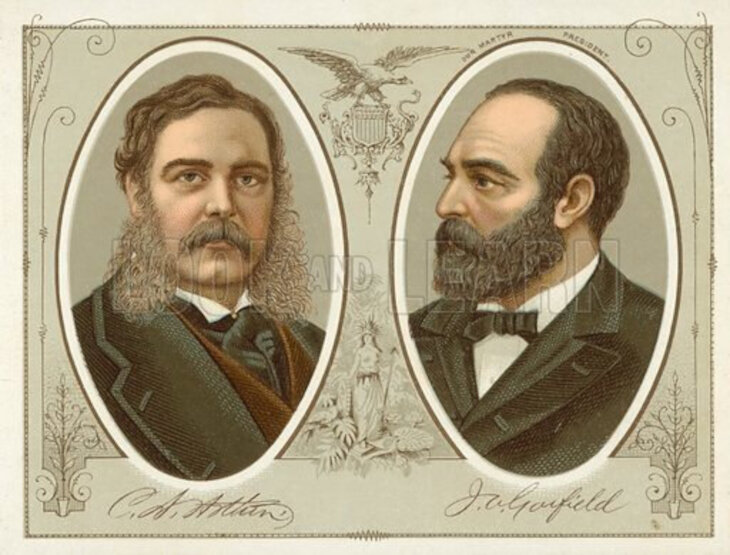
What gave President Arthur the strength to turn his back on all that he had known to take the more difficult path of doing what was right?
In 1958, Chester Alan Arthur III, President Arthur’s grandson, sold his grandfather’s papers to the Library of Congress, and some light was finally shed on what motivated the change in Arthur.
In his papers, there were letters from a New Jersey lady named Julia Sand. The first letter dated August 27, 1881 read:
Your kindest opponents say 'Arthur will try to do right' – adding gloomily – 'He won't succeed though making a man President cannot change him.'…But making a man President can change him! Great emergencies awaken generous traits which have lain dormant half a life. If there is a spark of true nobility in you, now is the occasion to let it shine. Faith in your better nature forces me to write to you – but not to beg you to resign. Do what is more difficult & brave. Reform! It is not proof of highest goodness never to have done wrong, but it is proof of it, sometimes in one’s career, to pause & ponder, to recognize the evil, to turn resolutely against it…. Once in awhile [sic?] there comes a crisis which renders miracles feasible. The great tidal wave of sorrow which has rolled over the country has swept you loose from your old moorings & set you on a mountaintop, alone.
Sand went on to write 23 letters to the President, cheering him on when he did what was right, and calling him out when he fell short. In her year of writing the President, Julia Sand never got a response.
On the evening of August 20, 1882, she received an unannounced visitor at her home, President Chester Alan Arthur! He came to thank her for being his moral conscious over the tumultuous previous year.
The Talmud (Avodah Zarah 17a) tells us of a man named Elazar Ben Dordaya who was so debased that he had visited every prostitute known to him. One day, in the middle of the act with such a woman, she spontaneously stated that Elazar Ben Dordaya will never change his ways. Her words – a prostitute – shook him to his core. He subsequently went outside, looking for somewhere to place his blame1 and finally concluded that if he was going to change, it would only be through his own actions. He then literally cried his soul out until he passed away.
At that point, a voice from Heaven announced that Rebbi Elazar Ben Dordaya is destined for the World to Come.
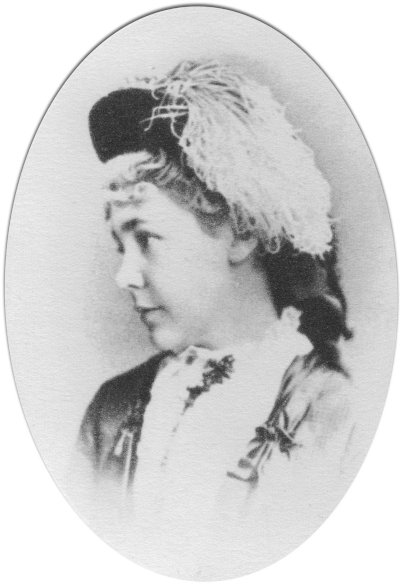 Julia Sand
Julia Sand
The presidency of Chester Alan Arthur echoes this story of repentance. If he had kept on the path he was on, his term would likely be remembered as more corrupt than that of Ulysses S. Grant. But his moral consciousness kicked in, spurred from the most unlikely of places, turning him into a president that ushered great reforms. This is why I find President Arthur so inspiring.
But there is another lesson here. Julia Sand wrote letters to a man whom she had never met, without knowing if her letters were even being received, much less read. She literally changed the course of American history.
As we head into this period of teshuva, repentance, let us all take the lessons of this inspiring story. We all have the ability to change – no matter how big or how small we are, and no matter what our past has looked like.
And we all have the ability to change the world, like Julia Sand. We just have to act and do what we can.
The historical accounts in this article are based on the books The Unexpected President: The Life and Times of Chester A. Arthur and Destiny of the Republic: A Tale of Madness, Medicine and the Murder of a President

This reminds me of my own life and changes.